VMU Study Programmes in Communication Are the Best in Lithuania

Vytautas Magnus University (VMU) offers the best study programmes in the field of communication in Lithuania – they are well-aligned with societal and labour market needs, take into account the growing demand for communication specialists, and the academic staff are highly qualified. Additionally, the university fosters a strong research culture. These conclusions were presented by an international expert panel from the Centre for Quality Assessment in Higher Education (SKVC).
The experts accredited all four VMU communication studies programmes – Bachelor’s programmes in Public Communication and Creative Industries, and Master’s programmes in Integrated Communication and Creative Industries – for the maximum period of seven years. VMU’s programmes received the highest scores in Lithuania: the master’s programmes scored 29 points and the bachelor’s 28. The expert panel included members from the United Kingdom, Denmark, Sweden, Ukraine, and Lithuania.
The field of communication is among the most competitive in Lithuania – the experts assessed over 20 study programmes across eleven higher education institutions. Kristina Juraitė, head of the VMU Department of Public Communications and Professor at the Faculty of Political Science and Diplomacy, states that VMU’s communication studies reflect the integrity of a highly dynamic professional field, its relevance and demand, and are a result of consistent academic collaboration.
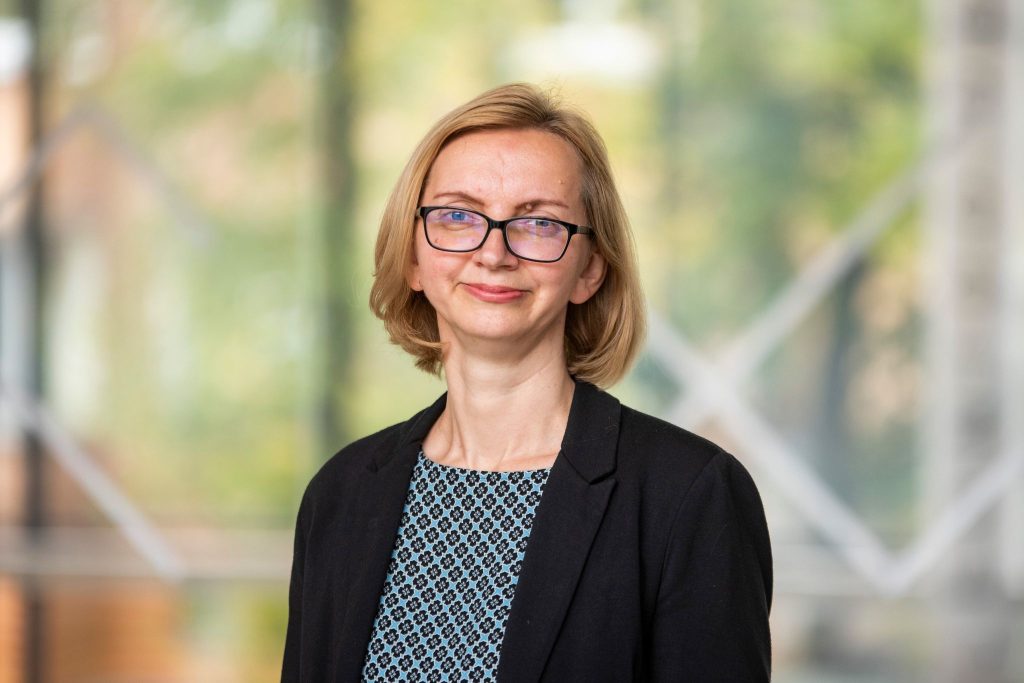
Prof. Kristina Juraitė
“The high evaluation from the experts is particularly significant this year as we mark 35 years since the university’s re-establishment, and also over 25 years of the Department of Public Communications’ academic and research activities at the University. It is gratifying that the uniqueness of VMU’s communication studies programmes was noted by international experts who highlighted the high quality of study organisation, research culture, the university community’s enthusiasm, student engagement, and the broad network of social partners,” says Prof. Juraitė, head of the working group for self-assessment of study programmes in the field of communication.
According to Ina Pukelytė, Associate Professor and head of the Master’s programme in Creative Industries at the VMU Faculty of Arts, this study programme has been a patiently and lovingly nurtured ‘baby’ by the faculty community.
“We are thrilled that this ‘baby’ has grown into a solid, internationally recognised player in the field of creative industries and is rated as the best in Lithuania. We are especially proud of our master’s students, whose maturity and motivation inspire the teachers to continuously update and adapt the programme to meet current societal needs,” notes Assoc. Prof. Pukelytė.
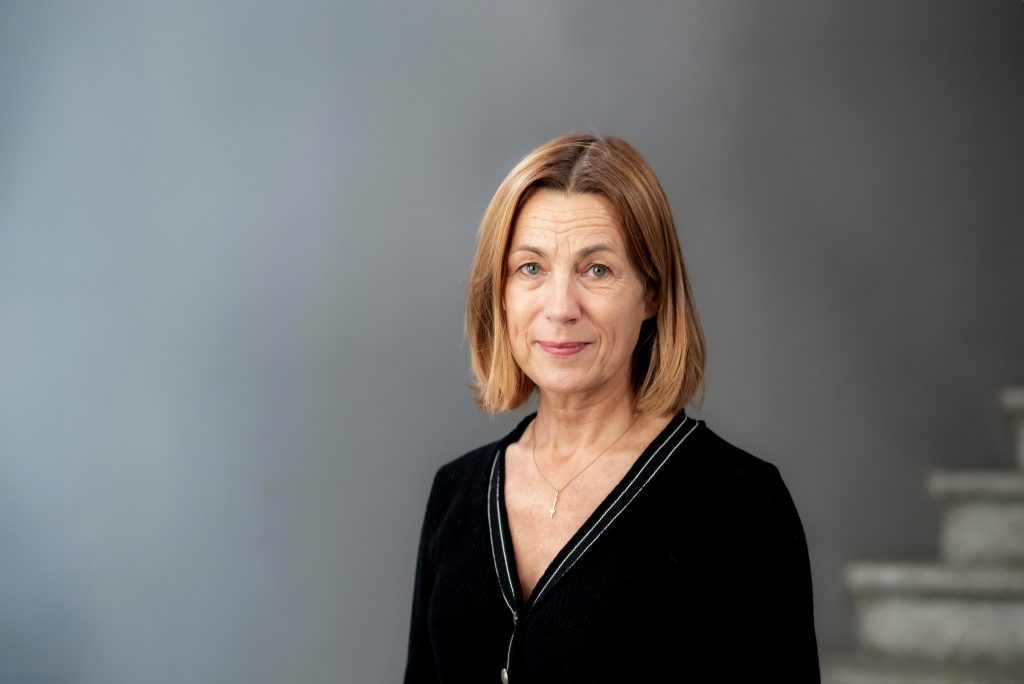
Assoc. Prof. Ina Pukelytė
Innovation and variety of courses
Eglė Nevedomskė, a graduate of VMU’s Master’s programme in Creative Industries, social partner of the University, producer of the ConTempo festival, and representative of the public institution Kultūros Platforma (Cultural Platform), fondly recalls her studies at VMU as highly innovative and novel. At that time, the then-newly launched programme was noted for its practicality and provided extensive knowledge about the creative industries.
“There was no shortage of practical work and research, which allowed me to view my environment, city, country, cultural field, and creative sector through the lens of the creative industries. Through these research projects, I learned various methodologies that I still apply in my work in the cultural field. The studies directed me towards the cultural sector, where I have now been working in the field of performing arts for ten years,” shares Eglė Nevedomskė.
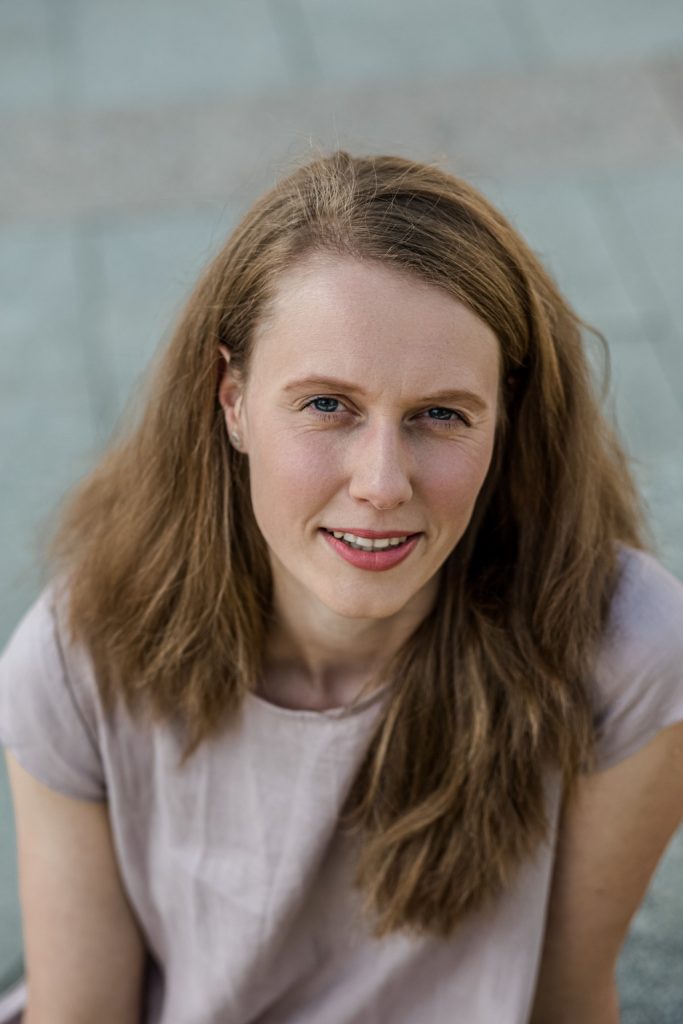
Eglė Nevedomskė. Photo from personal archive
The alumna also highlights the distinct difference she felt while studying at VMU compared to other universities in the country. “The faculty at VMU seemed much more open, approachable, striving to maintain the relevance of their courses, progressive, and warmly engaging with students. I also enjoyed the variety and quality of the courses,” emphasises the representative of Kultūros Platforma, adding that VMU students who are accepted as interns at this institution often become its full members.
Distinguished by a new approach
Asta Ivanauskienė, a graduate of VMU’s Master’s programme in Integrated Communication and Deputy Director General of the National Museum of Lithuania, also had high praise for her alma mater. She noted that the then newly-launched Integrated Communication studies stood out from the rest.
“Although communication specialists were being trained elsewhere at the time, these studies introduced a new approach, positing that everything overlaps and communication encompasses more than just the knowledge of a single speciality. The programme provided a general understanding of how communication works and how to convey messages to society,” the alumna summarises.
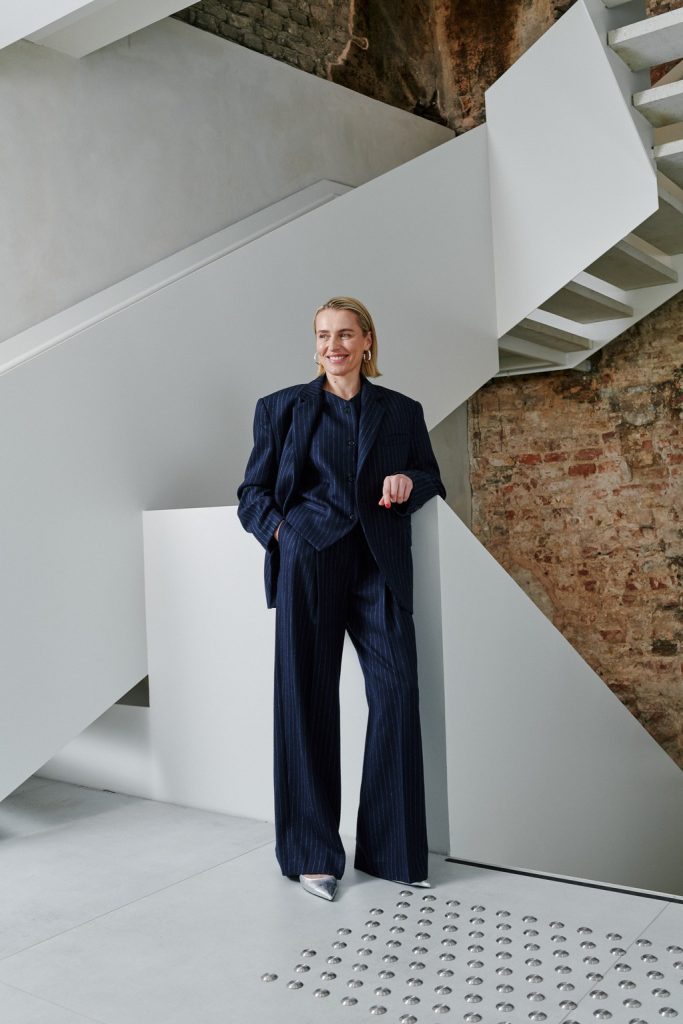
Asta Ivanauskienė. Photo from personal archive
“The studies laid the foundation that allowed me to utilise my acquired knowledge in leadership roles once I started working in a management position. I developed the skill to understand causal relationships – what, how, and why things work in today’s world – which is invaluable in a managerial role when making decisions,” Ivanauskienė concludes, revealing that the studies at VMU were particularly well-suited to her personality type, offering a wide choice of courses and shaping her understanding that it is important to strive for the greater good for the benefit of society.
Broad opportunities for self-actualisation
The high quality of VMU communication studies is also appreciated by current students of these programmes. Mažvydas Maziliauskas, a bachelor’s student in Creative Industries and an organiser of cultural events, says that these studies offer broad opportunities for self-actualisation. Here, students not only receive theoretical knowledge about various cultural and creative industry areas but also have the opportunity to apply this knowledge practically by implementing various projects.
“It was particularly interesting to try my hand at creating short films for a Film Industry project and to participate in a hackathon in Greece, where, together with a team, we presented a project – start-up that we had developed during our Personal Creative Activity Management lectures,” shares the student, who is also a member of both the VMU Faculty of Arts Council and the University Senate.
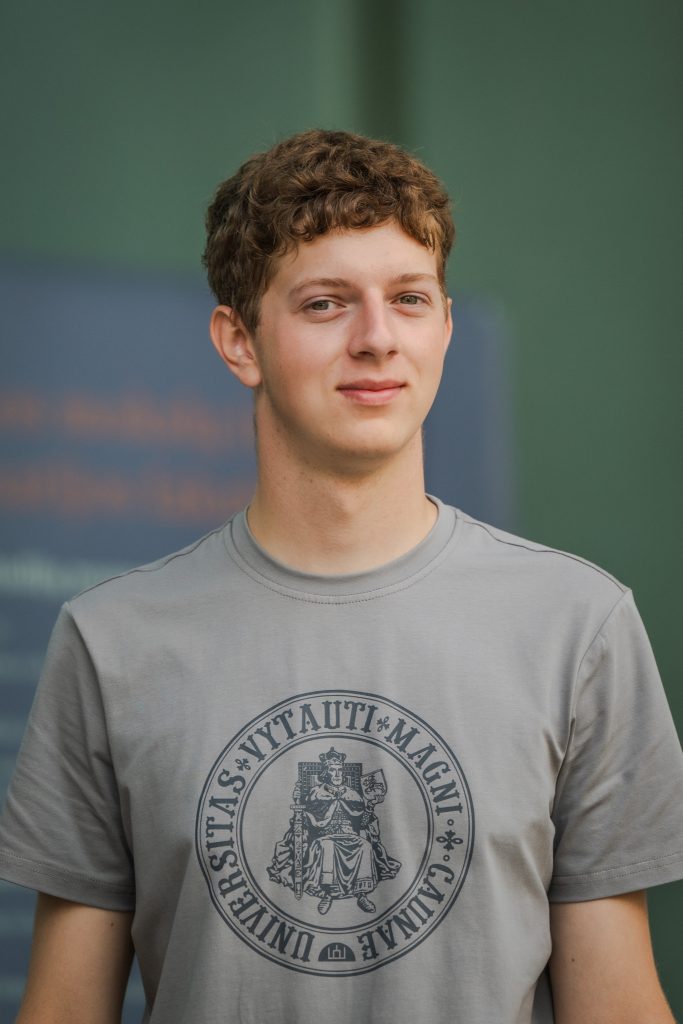
Mažvydas Maziliauskas
According to Mažvydas, he was most impressed by the lectures on visual communication, the music industry, entertainment theatre, and creative project management. “The teachers encourage us to think critically, engage in discussions, and seek new creative solutions. This study programme is not limited to just the field of culture and entertainment – it also provides knowledge on communication, project management, and entrepreneurship, thus preparing students for a successful career in the creative industries,” notes Mažvydas Maziliauskas, a former exhibition coordinator for Kaunas – European Capital of Culture 2022 and currently a cultural event organiser at the Marijampolė Cultural Centre.
“The skills and knowledge gained during the studies are lifelong – they not only intertwine with work nuances and complement each other but also provide a deeper understanding of everyday things we sometimes take for granted,” Mažvydas asserts.
VMU Communication studies – A true path of discovery
Vytautas Magnus University’s Communication studies are a true path of discovery, asserts Monika Pociūtė, a VMU Master’s student in Integrated Communication and a graduate of the Bachelor’s programme in Public Communication. According to her, learning from industry experts provides students not only with theoretical knowledge but also a deep understanding of the true art of communication.
“It enriches and educates you, and pushes you to critically, consciously, and creatively assess the surrounding information space,” reveals Monika Pociūtė, adding that the University became more than just a stepping stone for her – it is where she found close friends, colleagues, and opportunities not only for academic improvement but for personal growth as well. In the lectures, she was delighted not only by the interesting topics but also by the delivery – practical tasks help assimilate large amounts of information.
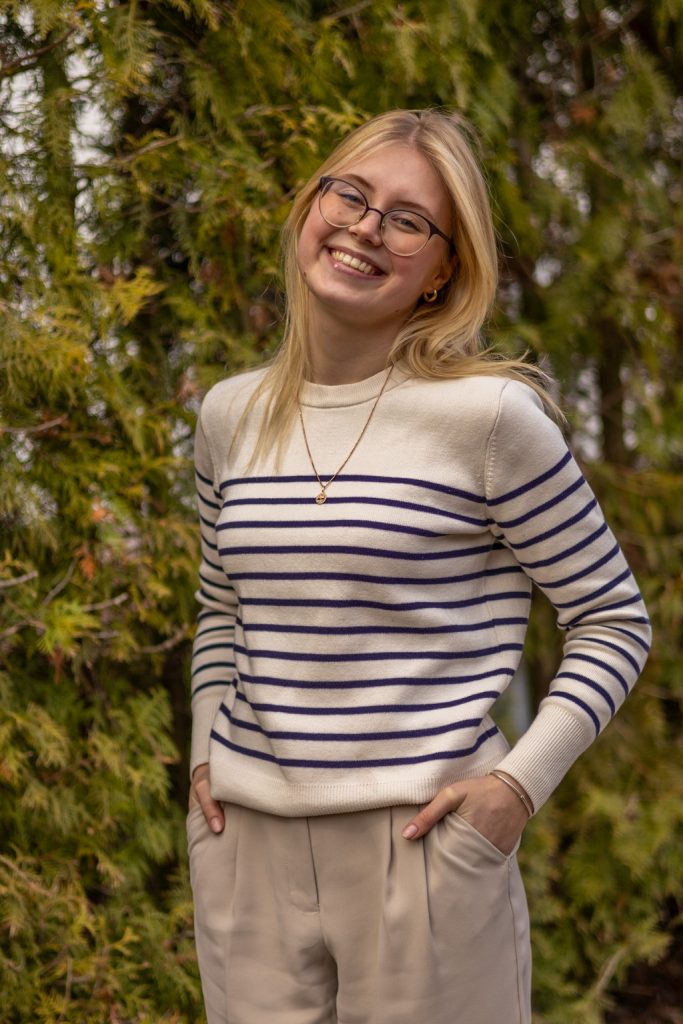
Monika Pociūtė
Like Mažvydas, Monika is highly active – not only does she study in the VMU Master’s programme, but she is also a member of the Lithuanian Scouts Association, a Senior Girl Scout, involved in organising the Peace Light of Bethlehem in Lithuania, and contributes to the communication of her parents’ tourism business.
She explains that she chose to study in the field of communication to make use of her communicative tendencies. “The University programme opened up all possibilities. We live in the Information Age, where communication and the ability to convey ideas have become some of the most important skills – this field of study provides the opportunity not only to understand but also to manage these processes,” notes Monika Pociūtė.
Meets societal and labour market needs
The international expert panel assembled by the Centre for Quality Assessment in Higher Education (SKVC) summarises in their findings that VMU’s communication programmes are of high quality, with a clear commitment to continuous improvement and relevance to current trends and market demands.
The panel highlighted the high-level skills of the teachers, their readiness to adopt an individual approach and implement changes into the whole study process, and emphasised that the programmes are taught by “excellent, enthusiastic staff members with a clear passion for their subjects and practices and a genuine desire to support student learning.”
Experts also commended a strong and supportive research culture and the quality of research, particularly relating to theory and intellectual advances in the field. It is noted that the aims and learning outcomes of VMU’s communication study programmes are well-aligned with societal and labour market needs, demonstrating a clear understanding of the increasing demand for communication professionals and the necessity to develop new competencies.
“The curriculum aligns well with various national and European strategic documents and market studies, providing students with a well-structured progression from undergraduate to postgraduate levels. The programmes offer flexibility for students to tailor their studies to individual needs and include innovative teaching practices and robust Erasmus opportunities,” the SKVC expert panel concludes.
The assessment also emphasises that VMU’s academic staff are highly qualified and engaged in research and teaching, bringing practical knowledge and expertise to the programmes. The involvement of social partners and alumni in curriculum development further strengthens the programmes.
VMU Faculty of Arts study programmes
VMU Faculty of Political Science and Diplomacy study programmes
Experts’ evaluation report










